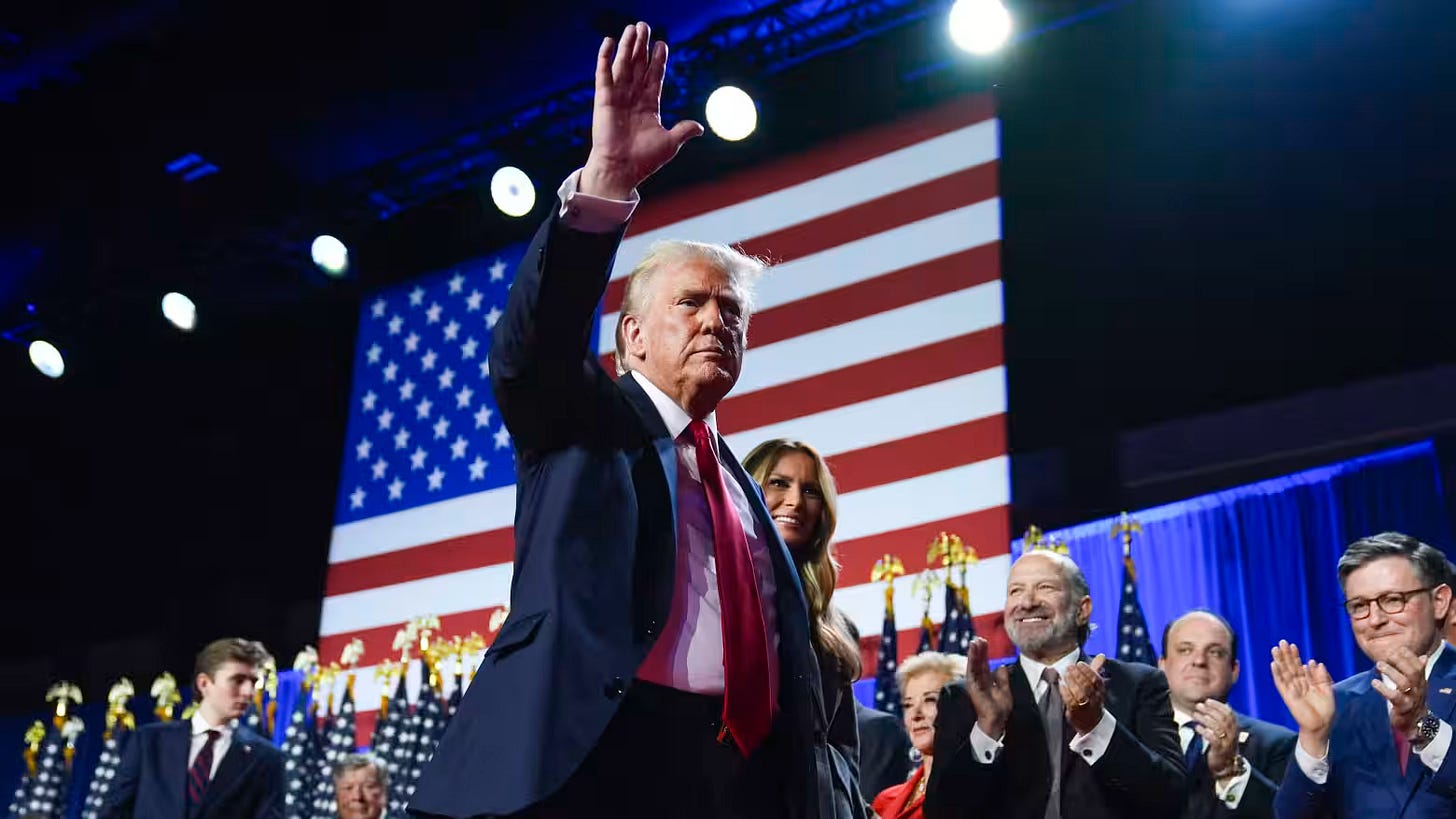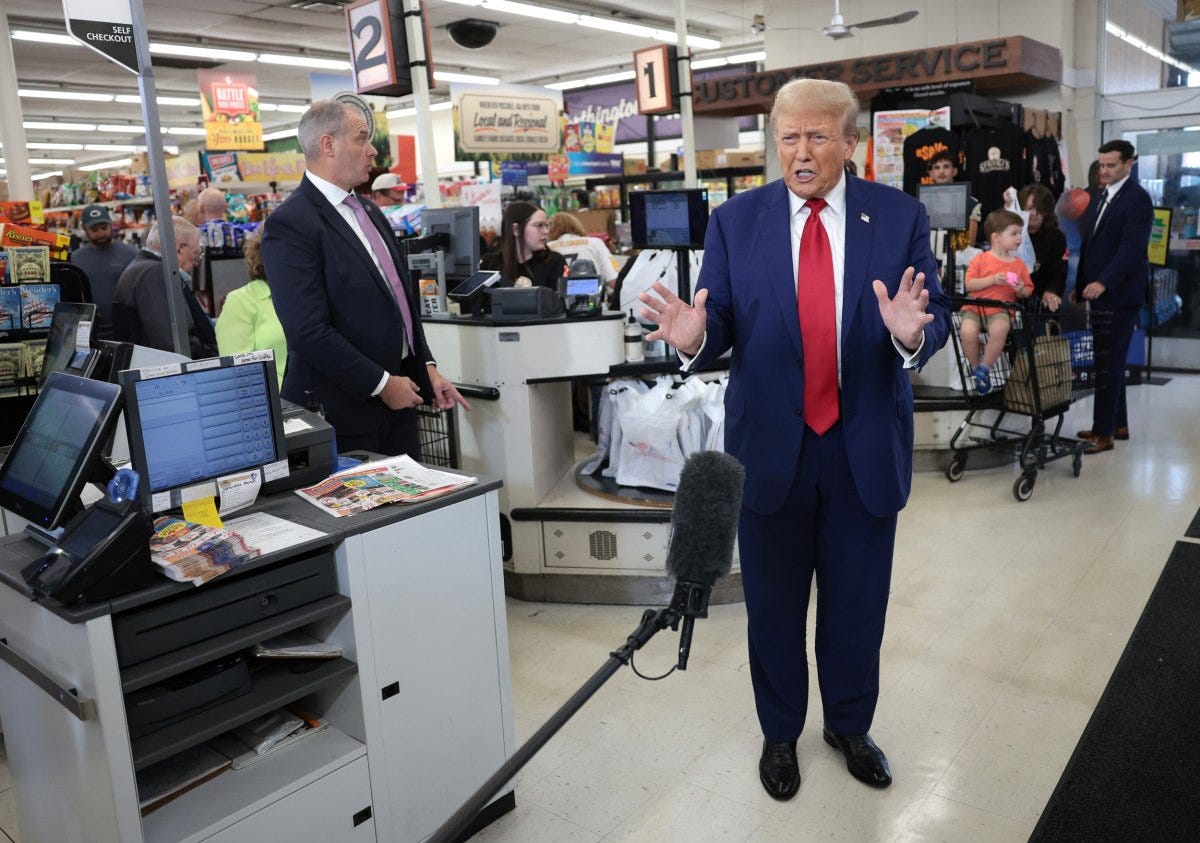Trump Won, Time to Accept It
Why Kamala Harris lost and my main foreign policy concerns with the incoming administration.
Foreign Perspectives is gradually shifting into more paid content. Certain columns such as Bonus Perspectives and A Bit of Film and War will remain free for all subscribers, but articles like these will be exclusive for paid subscribers. If you enjoy the work I do, please consider upgrading to a monthly or yearly subscription. Your support is greatly appreciated and ensures that this Substack can continue to deliver high quality pieces.
Here’s a first for Foreign Perspectives, a spur-of-the-moment column on a U.S. election. In case you’ve been living under a rock for the past 24 hours, Donald Trump is now slated to be the 47th president of the United States and is only the second candidate in history to win two non-consecutive terms. Move over, Grover Cleveland. The one interesting factoid about your obscure presidencies is now irrelevant. Nice stache though.
Usually I reserve takes on political topics for my weekly column Bonus Perspectives, but there’s so much on my mind that I wanted to get out that I don’t think one segment in a four-part article would be enough. This deserves its own full piece, and while a lot will be said in the coming days, weeks, and even years, I thought it would be more important to get my initial thoughts out now while they’re still fresh.
Emotions are high on both sides, and I wanted to provide something a bit more nuanced from the unique perspective of an American living abroad who has watched this soap opera unfold for a long time. Many on the left are shocked that Trump could win again despite what we all know about him as a human being, but that only tells me that they’ve been living in a bubble for too long and need to get out of it.
I predicted that Trump would win a second term the moment that he announced his candidacy in 2022, but especially when Kamala Harris announced hers earlier this summer. You can read my column published in late July if you don’t believe me. Here’s what I wrote then:
I think Harris simply has too much against her with the general lack of enthusiasm for her campaign and the overall decline in Biden’s approval ratings. Even if neither of the options are good ones, Americans will historically choose change if they perceive the current party’s regime as ineffective. The real question is if Americans’ dissatisfaction with the establishment will outweigh dislike of Trump as it did in 2016. I don’t anticipate Trump to win in a landslide, but then again, neither did Nixon when he entered the White House in 1968.
Call me Nostradamus if you wish, but at the time I thought that these were rather trite observations. Even as someone who doesn’t reside in the United States anymore and has never had to live under the Biden administration, I could tell that most Americans, or at least enough of them for it to count at the ballot box, were not happy with how things were going. One of the most notable issues this election cycle was the rising costs of groceries. Even though actual prices have leveled off, they still feel high to most American consumers and simply trying to put food on the table is a far more expensive ordeal now than it was five years ago.
Is that directly Biden’s fault and can the president really change the prices of groceries? Probably not, but economic insecurity, real or perceived, is one the biggest reasons for political power shifting to a rival party in most democracies. Economists I greatly respect like my friend Noah Smith have made logical cases for why Biden was actually a good president, but hard numbers and data unfortunately don’t matter to a Pennsylvanian coal miner who needs to feed his family. Harris was largely perceived as being a continuation of Biden, which as the incoming popular vote numbers are currently showing, isn’t what the majority of the country wanted.
The votes are still coming in as of this writing, but Trump took in over 5 million votes more than Harris. If that wasn’t embarrassing enough, Harris won roughly 14 million less votes than Joe Biden received in 2020. A Republican hasn’t won the popular vote in a U.S. presidential election since George W. Bush in 2004. That can probably be accounted for the post-9/11 high the country was feeling toward his administration, and even that was on its way out by then.

Something changed for this to have happened again after 20 years, and the only logical conclusion is that enough Americans are dissatisfied with the Democrat establishment. What the Biden administration especially represented as a tired system that was not working finally lead to such a major nationwide shift. As I predicted, Trump did not win in a landslide (see here for actual examples of one), but if I was wrong about one thing, it’s that I underestimated how much of the popular vote he would win. Harris didn’t even come close.





